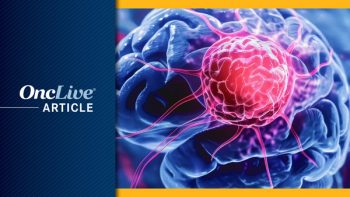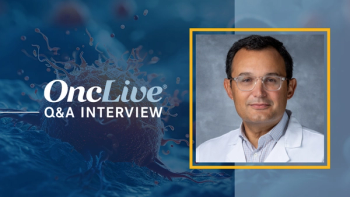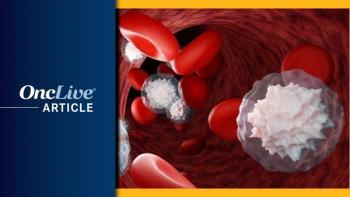
Universal Allogeneic CAR T-Cell Product Demonstrates Efficacy in a Cohort of Adult T-ALL
The first-in-clinic universal CAR T-cell therapy TruUCAR GC027 induced promising early response rates and demonstrated a manageable safety profile with no evidence of neurotoxicity events or graft-versus-host disease in adult patients with relapsed/refractory T-cell acute lymphoblastic leukemia.
The first-in-clinic universal chimeric antigen receptor (CAR) T-cell therapy TruUCAR GC027 induced promising early response rates and demonstrated a manageable safety profile with no evidence of neurotoxicity events or graft-versus-host disease (GVHD) in adult patients with relapsed/refractory T-cell acute lymphoblastic leukemia (T-ALL).
All 5 patients who were evaluated in a prospective trial of the agent reached a complete remission (CR) or CR with incomplete hematologic recovery (CRi) at the first evaluation. Four patients (80%) had a minimal residual disease—negative CR at 1 month.
GC027 is a universal CAR T-cell therapy that targets CD7-positive T-cell malignancies using the TruUCAR platform developed by Gracell Biotechnologies.1 TruUCAR technology is based on modified lymphocytes from healthy donors that are gene edited to avoid graft-versus-host disease and rejection.
At the 2020 AACR Virtual Annual Meeting I, Xinxin Wang, PhD, presented data to a virtual audience and described the basic principles behind GC027 production. “An anti-CD7 CAR was introduced by lentivirus which enables rapid elimination of T-ALL. Since it is an allogeneic product, to avoid GVHD which can lead to lethal organ damage, the expression of TCR [T-cell receptors] was ablated by genomic disruption of TRAC [T-cell receptor α chain] locus using the CRISPR/Cas9 system. CD7 locus was also disrupted to avoid fratricide during CAR T-cell production.”
Since GC027 is a universal product, manufacturing of CAR T-cells was completed before patient enrollment, said Wang, who is group leader for TruUCAR development at Gracell Biotechnologies, Ltd.
Baseline bone marrow burden was analyzed before preconditioning regimens. Patients received a single infusion at one of 3 dose levels: 1 patient each received 6 × 106 cells/kg (dose level 1) and 1.5 × 107 cells/kg (dose level 3), respectively, and 3 patients received 1 × 107 cells/kg (dose level 2). Patients were followed for incidence of adverse events, response to therapy, and CAR T-cell expansion.
Adult patients aged 18 to 70 years with relapsed/refractory T-ALL who are positive for CD7 expression by flow cytometry or immunohistochemistry and have a projected survival greater than 3 months were allowed to participate in the trial. All patients had to have an ECOG performance status of 2 or less and had to be considered suitable for allogeneic hematopoietic stem cell transplant. Patients with active infections, major organ dysfunction, or extramedullary or central nervous system involvement were not allowed to accrue onto the trial.
At the time of data cutoff, a total of 5 patients were enrolled in the trial. The median patient age was 24 years (range, 19-38), the median number of prior therapies was 5, and the median tumor burden at baseline was 38.2% of blasts (range, 4-80.2). None of the patients had received prior allogeneic hematopoietic stem cell transplants.
Cellular expansion was observed as early as day 5 and continued for 2 weeks. One patient who achieved a CR at day 14 but relapsed at day 29 had the shortest duration of CAR T-cell expansion by quantitative polymerase chain reaction (qPCR) and did not achieve CAR T-cell expansion by flow cytometry.
Expansion kinetics as measure by qPCR showed that CAR T expansion started as early as day 1 after infusions. There did not appear to be a direct correlation between tumor burden and peak cell expansion.
The patient treated with the lowest dose, or dose level 1, had a tumor burden of 45.84% with a peak level of TruUCAR by qPCR of 1,241,762 copies/ug. Of the 3 patients treated at dose level 2, measures of tumor burden were observed at 3.65%, 80.2%, and 6.7% with corresponding rates of peak TruUCAR by qPCR at 308,303 copies/ug, 205,963 copies/ug, and 98,460 copies/ug. With the highest dose level, peak level of TruUCAR was 872,170 copies/ug with 38.20% tumor burden.
Patients with T-ALL comprise 20% to 25% of the adult ALL population and 12% to 15% of the pediatric ALL population. The highly aggressive nature of the disease and limited treatment options makes it a high unmet medical need.
A challenge in the development of therapeutics for treating T-ALL involves shared common antigens between disease and normal T cells, meaning immunotherapeutic and targeted agents may target both. Universal allogeneic versus autologous CAR T-cell therapies offer an advantage because of its potential to overcome leukemic cell contamination that is observed with autologous products.
“With these early promising results of this prospective study of TruUCAR GC27, further evaluation is warranted,” Wang concluded.
Wang X, Li S, Gao L, et al. Clinical safety and efficacy study of TruUCAR GC027: the first-in-human, universal CAR-T therapy for adult relapsed/refractory T-cell acute lymphoblastic leukemia (r/r T-ALL). Presented at: American Association for Cancer Research Annual Meeting I; Virtual; April 27-28, 2020. Abstract CT052. bit.ly/3aKcB2H.



































